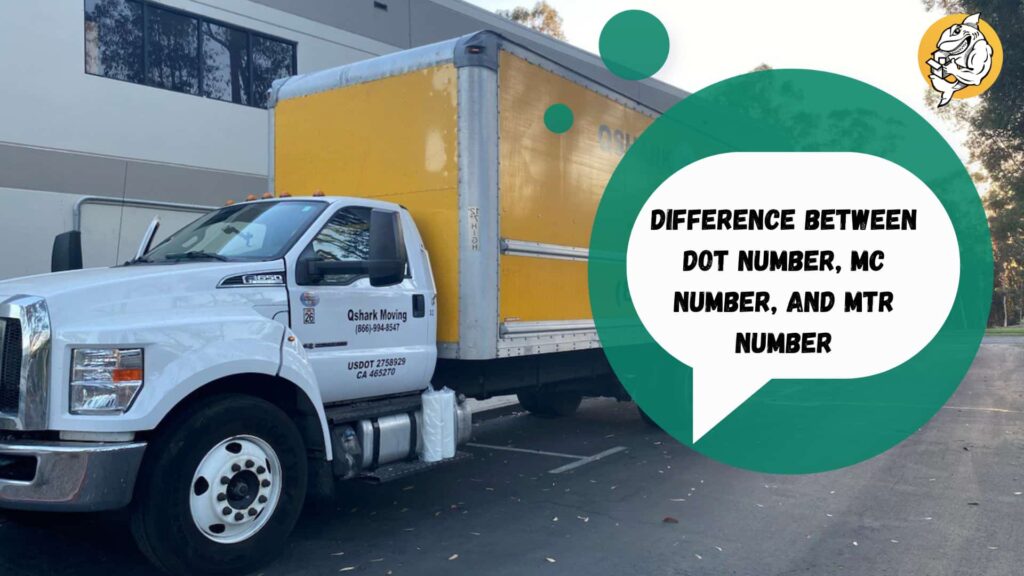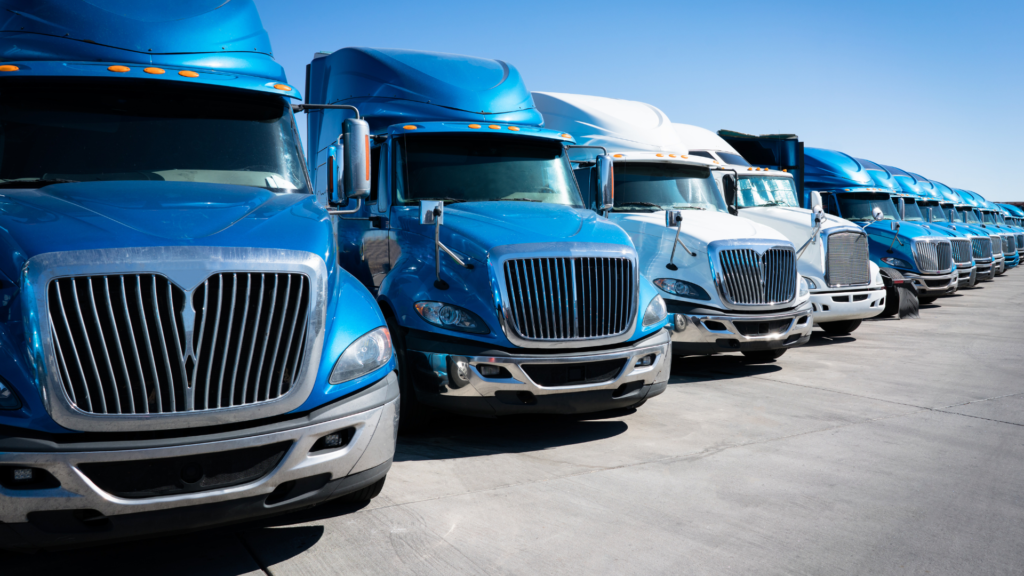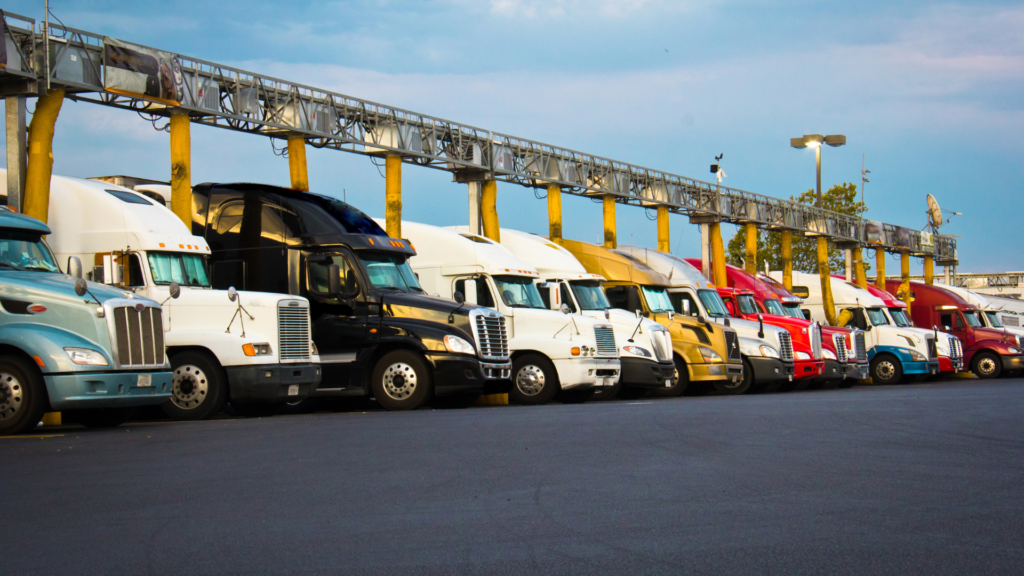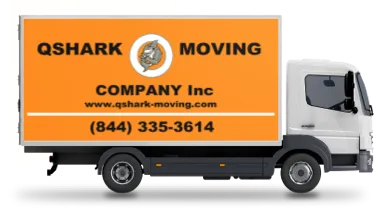Difference Between DOT number, MC number, and MTR number

Summary:
In the intricate world of the moving industry, understanding regulatory numbers like the DOT, MC number, and MTR is paramount. These identifiers are pivotal in ensuring safety, compliance, and trustworthiness. Dive into this comprehensive guide by Qshark Moving Company, a leader with over eight years of experience and 50,000 moves under its belt, to grasp the nuances of these numbers and their significance in the transportation realm.
Short Answer: What is the difference between MC, DOT, and MTR numbers?
The DOT number is a unique identifier assigned by the Federal Motor Carrier Safety Administration (FMCSA) for monitoring a company’s safety information, especially those operating commercial vehicles in interstate commerce. The MC (Motor Carrier) number, also issued by the FMCSA, signifies a transportation company’s authority to transport goods or passengers for hire across state lines. The MTR (Motor Transport Registration) number is a state-specific identifier used to regulate intrastate carriers, ensuring they adhere to state-specific regulations and standards. In essence, while DOT and MC numbers are federally regulated, the MTR is more localized to individual states.
| Identifier | Description | Purpose | Regulation Level |
|---|---|---|---|
| DOT Number | Unique identifier assigned by the FMCSA for safety monitoring. | Monitoring safety information of companies operating commercial vehicles in interstate commerce. | Federal |
| MC Number | Signifies a company’s authority to transport goods or passengers for hire across state lines. | Granting authority for interstate commerce operations. | Federal |
| MTR Number | State-specific identifier for intrastate carriers. | Regulating carriers operating exclusively within a single state. | State-specific |
I. Introduction
Much like the broader trucking industry, the moving industry is governed by many regulations and standards. These are set in place to ensure the safety of the companies operating within the industry and their customers. At the heart of these regulations are key identifiers of trucking authority: the DOT number, MC number, and MTR number. Each serves a unique purpose and is crucial for a moving or trucking company’s operations.
At Qshark Moving Company, we’ve navigated the complexities of these numbers for over eight years. With operations spanning from San Diego to Los Angeles and even Orange County, we’ve seen firsthand the importance of understanding and complying with interstate authority rules along with these identifiers. They’re not just numbers but a testament to a company’s commitment to professionalism, safety, and federal regulations.
DOT Number: A unique identifier assigned by the Federal Motor Carrier Safety Administration (FMCSA) for companies that operate commercial vehicles, especially those that cross state lines or transport hazardous materials.
MC Number (Motor Carrier Number): This number is all about interstate commerce. It’s the golden ticket for private carriers like ours to operate across state lines. It signifies a company’s authority to transport goods or passengers for hire across multiple states.
MTR Number: While not as commonly discussed as the DOT or MC numbers, the MTR number is equally significant, especially for specific operations within the moving industry.
As we delve deeper into the nuances of these numbers, we’ll explore their key differences, how they impact operations like transporting household goods, and why they’re essential for anyone considering a move or entering the moving industry.

2. DOT Number: A Closer Look
The DOT number, or the US Department of Transportation number, for commercial motor vehicles, is a unique identifier that plays a pivotal role in the tracking and monitoring of companies operating commercial vehicles. It’s not just a number; it reflects a company’s adherence to safety and federal regulations.
What is the DOT Number?
The DOT number is a unique identifier the Federal Motor Carrier Safety Administration (FMCSA) assigns. It’s primarily used for monitoring a company’s safety information, including inspections, audits, compliance reviews, and crash investigations.
For moving companies like Qshark, it’s a testament to our commitment to safety and professionalism.
Who Needs a DOT Number?
Companies that operate commercial vehicles transporting passengers or hauling cargo in interstate commerce.
Those with vehicles that have a gross vehicle weight or gross vehicle weight rating of over 10,000 pounds.
Companies that transport more than 8 passengers for compensation or more than 15 without compensation.
Any company that transports hazardous materials in quantities requiring placarding.
How to Obtain a DOT Number?
Determine if you need a USDOT number by understanding the criteria mentioned above.
Visit the Unified Registration System (URS) and complete the online application process.
Ensure you have all the necessary business information and details about your commercial vehicles.
Once approved, display the DOT number prominently on all your commercial vehicles.
Importance for Safety and Regulatory Compliance
The DOT number ensures that companies adhere to the safety standards set by the FMCSA. It’s a way for the government to track companies and ensure they comply with all federal regulations.
For customers, seeing a DOT number on a moving company’s vehicle signifies trust. It means the company operates within the bounds of the law and prioritizes safety.
3. MC Number: The Main Focus
The MC number, or Motor Carrier number, of commercial vehicle, is central to interstate commerce. This number is indispensable for companies like Qshark that operate across various locations, from San Diego to Irvine.
What is the MC Number?
The MC number refers to the operating authority granted to carriers by the FMCSA. It allows companies to transport goods or passengers for hire across state lines.
It’s a reflection of a company’s authority to operate in the realm of interstate commerce.
Who Needs an MC Number?
Any company involved in interstate operations fits the criteria of a “for hire” carrier.
Companies that transport federally regulated commodities or passengers across state lines.
Brokers and freight forwarders who don’t operate their cargo vehicles but arrange for the transportation of goods.
How to Obtain an MC Number?
Determine if your company needs an MC number by understanding the abovementioned criteria.
Visit the FMCSA registration website and complete the application process.
Pay the associated application fees. It’s essential to note that the FMCSA operating authority doesn’t refund application fees, so ensure you meet all the criteria before applying.
Once approved for operating authority, display the MC number prominently on all your commercial motor vehicles.
Qshark Moving Company’s Insights on the Importance of the MC Number
The MC number is a testament to a company’s authority to operate across state lines. For a company like Qshark, with operations in multiple locations, from Costa Mesa to Rancho Cucamonga, it’s a crucial identifier.
It builds trust with customers. When they see an MC number, they know they’re working with a company that has the authority to move their belongings across state lines safely and legally.

4. MTR Number: Understanding its Role
While major differences between the DOT and MC numbers often take center stage in discussions about moving and transportation regulations, the MTR number holds its significance, especially in certain states and for specific operations within the moving industry.
What is the MTR Number?
The MTR number, or Motor Transport Registration number, is a state-specific identifier used in certain areas to regulate intrastate carriers. Unlike the DOT and MC numbers, which are federally regulated, the MTR is more localized.
It’s essential for companies operating within a single state to ensure they adhere to state-specific regulations and standards.
Who Requires an MTR Number?
Companies that operate exclusively within a single state (intrastate carriers) and don’t cross state lines.
Moving companies that transport household goods within a state’s boundaries. For instance, if Qshark were to operate solely within Los Angeles, an MTR might be necessary depending on state regulations.
Certain states may require the MTR number for specific types of cargo or under particular conditions.
How to Secure an MTR Number?
Check with your state’s transportation or motor vehicle department to determine if an MTR number is required for your operations.
Complete the state-specific application process, which may vary from one state to another.
Pay any associated fees, and ensure you understand the renewal process, as some states may require periodic renewals.
Per state guidelines, display the MTR number on your commercial motor vehicles.
The Significance of the MTR Number for Moving Companies
The MTR number ensures that intrastate carriers adhere to state-specific regulations, ensuring safety and compliance within state boundaries.
For customers, it provides an added layer of assurance. When they see an MTR number, they know the trucking company complies with local regulations, ensuring a smooth moving experience, whether relocating within San Diego or any other city.
5. Key Differences Summarized
Understanding the nuances of DOT, MC, and MTR numbers can be intricate. Here’s a concise breakdown:
DOT Number:
Federally regulated by the FMCSA.
Focuses on safety and compliance for companies operating commercial vehicles.
Essential for companies crossing state lines or transporting hazardous materials.
MC Number:
Also federally regulated by the FMCSA.
Indicates a company’s authority to operate in interstate commerce.
Essential for “for hire” carriers and those transporting federally regulated commodities across state lines.
MTR Number:
State-specific identifier.
Regulates intrastate carriers operating within a single state.
Requirements vary from state to state.

6. The Importance Of Operating Authority
For moving companies, these numbers are not just regulatory requirements but badges of honor, reflecting commitment, professionalism, and trustworthiness.
Safety and Compliance: Adhering to these numbers ensures that companies like Qshark prioritize safety in Irvine or Orange County.
Building Trust: For customers, these numbers are indicators of a company’s legitimacy and professionalism. They can be assured their belongings are in safe hands.
Operational Flexibility: With the right numbers, moving companies can operate across state lines, offering services to a broader range of customers.
7. Renewing and Maintaining Compliance
Obtaining these numbers isn’t the end of the journey for moving companies. Regular renewals and ongoing compliance are crucial to maintaining operational legitimacy and trustworthiness.
Renewal Processes
DOT Number:
The FMCSA requires companies to update their information every two years. This process is known as the biennial update.
Companies can update their information through the Unified Registration System (URS).
MC Number:
Unlike the DOT number, the MC number has no specific renewal date. However, companies must maintain a bond, trust fund, and insurance to keep their MC number active.
MTR Number:
Renewal processes for MTR numbers vary by state. It’s essential to check with the local transportation or motor vehicle department for specific renewal guidelines.
Penalties for Non-compliance
DOT and MC Numbers:
Failing to maintain compliance can result in civil penalties. For instance, not completing the biennial update for the DOT number can lead to deactivation.
Operating without the necessary MC authority can result in hefty fines.
MTR Number:
Penalties for non-compliance with MTR regulations are state-specific. They can range from fines to the suspension of intrastate operating privileges.
Ensuring Ongoing Compliance
Regularly review federal and state regulations to stay updated.
Attend workshops or seminars focused on the moving and transportation industry. This can help companies like Qshark stay ahead of regulatory changes.
Consider consulting with authority experts or legal professionals specializing in the transportation sector.

8. For Customers: Verifying Authenticity
When hiring a trucking company, customers should ensure they work with a legitimate and compliant service provider. Here’s how they can verify the authenticity of DOT, MC, and MTR numbers:
FMCSA’s SAFER System: Customers can use the Safety and Fitness Electronic Records (SAFER) System to verify DOT and MC numbers. This system provides company safety data and related services to industry and the public.
State-specific Databases: For MTR numbers, customers should check with their state’s transportation or motor vehicle department. Many states offer online databases where MTR numbers can be verified.
Ask the Trucking Company: Reputable moving companies, like Qshark, should readily provide their DOT, MC, and MTR numbers upon request. They might even have them displayed on their website or marketing materials.
Check the Vehicles: Legitimate moving companies will prominently display their DOT and MC numbers on their commercial vehicles.
9. Conclusion
Understanding the intricacies of DOT, MC, and MTR numbers is crucial for moving companies and their customers. These numbers are more than just regulatory requirements; they symbolize commitment, safety, and professionalism in the moving industry. As a company with extensive experience from coast to coast moves to local relocations, Qshark Moving Company emphasizes the importance of these numbers in ensuring a smooth, compliant, and trustworthy moving experience for all.
FAQ (Frequently Asked Questions)
Q: What is the difference between interstate operating authority and motor carrier authority?
A: Interstate operating authority refers to the permission granted to carriers to operate across multiple states, while motor carrier authority is a broader term that encompasses the rights and permissions for carriers to transport goods or passengers, whether intrastate or interstate.
Q: Can a company have multiple operating authorities?
A: Yes, a company can have multiple operating authorities, especially if they transport goods and passengers or deal with exempt commodities and regular goods.
Q: How do MC and USDOT numbers differ?
A: MC numbers are specific to the authority to operate as an interstate carrier, especially for “for hire” carriers. In contrast, USDOT numbers are unique identifiers the FMCSA assigns for safety compliance and monitoring purposes.
Q: What is the financial responsibility of an interstate carrier?
A: Interstate carriers are required to demonstrate proof of adequate insurance coverage to ensure they can cover liabilities, especially in the event of accidents or damages.
Q: Are exempt commodities different from regular goods?
A: Yes, exempt commodities refer to specific goods exempt from certain federal regulations, often due to their nature or the industry they belong to.
More Questions For Trucking Companies
Q: Do existing carriers need to reapply for their MC or USDOT numbers?
A: Existing carriers don’t need to reapply but must ensure they renew or update their information as required, especially for the USDOT biennial update.
Q: What’s the difference between passenger and commercial carriers?
A: A passenger carrier specifically focuses on transporting passengers, while a commercial carrier is involved in transporting goods. The regulations and requirements can differ between the two.
Q: How can I check the MC status of a moving company?
A: You can verify the MC status of a moving company through the FMCSA’s SAFER System, which provides up-to-date information on a carrier’s operating status and compliance history.
Q: Do first-time applicants have a different process for obtaining MC and USDOT numbers?
A: First-time applicants must go through the initial application process, which includes providing specific business details, paying associated fees, and demonstrating compliance with safety and insurance requirements. The process might be more detailed compared to renewals or updates.
Q: Can a single company operate in multiple states with one set of MC and USDOT numbers?
A: As long as they have the necessary interstate operating authority, a company can use their MC and USDOT numbers to operate across multiple states.


 DIY Moving vs. Professional Movers: Pros and Cons
DIY Moving vs. Professional Movers: Pros and Cons The Ultimate Guide to Moving from San Francisco to Los Angeles: Your Step-by-Step Handbook
The Ultimate Guide to Moving from San Francisco to Los Angeles: Your Step-by-Step Handbook Guide to Moving With Kids: Age-by-Age Insights from the Experts
Guide to Moving With Kids: Age-by-Age Insights from the Experts Moving with pets: Tips for making a move less stressful for furry family members.
Moving with pets: Tips for making a move less stressful for furry family members. The Top 10 Questions to Ask When Hiring Movers
The Top 10 Questions to Ask When Hiring Movers